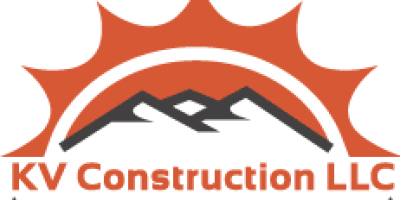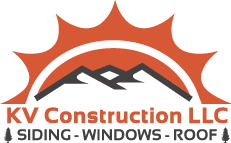When you’re considering a siding replacement for your home, understanding the terminology can be an invaluable asset. Knowledge will empower you as a homeowner, helping you make informed decisions about the materials and processes used in your project. KV construction LLC, as one of the leading siding contractors in Seattle, believes in educating our clients. Here, we present 25 key siding terms that will give you a head start.
1. Lap Siding
Lap siding, also known as clapboard or horizontal siding, is characterized by long, horizontal planks overlapping one another. This design promotes effective water runoff, making it a popular choice among homeowners.
2. Board and Batten
Board and batten is a vertical siding style. It uses alternating wide boards and narrow battens. This configuration provides a unique aesthetic and is often preferred for its rustic appearance.
3. Fascia
Fascia refers to the horizontal band running along the edge of the roof. It’s crucial for supporting the bottom row of tiles and your home’s gutter system.
4. Soffit
Located underneath the overhanging section of a roof eave, the soffit helps in ventilation and provides a finished look to the underside of the eaves.
5. Flashing
Flashing is a material, often metal, used to direct water away from critical areas of the siding or roof, preventing water intrusion.
6. Fiber Cement
A durable material, fiber cement is made from a combination of wood fibers, sand, and cement. Its resilience against elements makes it a favored choice among siding companies in Seattle WA.
7. Vinyl Siding
Vinyl siding is composed of PVC and offers versatility in terms of color and style. It’s known for its affordability and low maintenance.
8. Aluminum Siding
An older siding option, aluminum is lightweight and resistant to rust. Though less common now, it remains an option for those seeking specific aesthetics.
9. Wood Siding
Classic and timeless, wood siding offers natural beauty. It requires regular maintenance to prevent decay and protect from pests.
10. Stucco
A mix of sand, lime, and cement, stucco provides a textured appearance and is applied wet over a lattice framework.
11. R-Value
The R-Value measures insulation capability. A higher R-Value signifies better insulating properties, essential for energy efficiency.
12. Weep Hole
Found at the bottom of certain siding installations, weep holes allow trapped moisture to escape, preventing mold growth and decay.
13. Miter Joint
This term refers to a joint made by beveling two pieces to fit together, often used for creating seamless corners.
14. Square
In siding lingo, a square represents an area of 100 square feet. It’s a measurement unit often used in siding install in Seattle and other places.
15. J-Channel
J-Channel is a component of vinyl siding, designed to hold the ends of the siding pieces in place around windows and doors.
16. Underlayment
A barrier installed under the siding, the underlayment helps prevent water intrusion and enhances insulation.
17. Sheathing
Sheathing is a board or panel material placed over exterior studs. It acts as a base for the exterior siding.
18. Corner Posts
These are vertical channels that hide the adjoining ends of siding at the corners of the house.
19. Caulking
A waterproof sealant used to fill gaps in siding, caulking prevents water intrusion and improves energy efficiency.
20. Dutch Lap Siding
This type of siding showcases a groove at the top of each plank, creating a shadowed, dimensional aesthetic.
21. Insulated Siding
This siding comes with built-in insulation, enhancing the R-Value and overall energy efficiency of the home.
22. Eave
The eave is the edge of the roof that extends beyond the house’s exterior walls, helping to direct rainwater away.
23. Furring Strip
A wooden or metal strip, the furring strip ensures a level surface for siding installation, especially over uneven walls.
24. Galvanized Steel Siding
This siding type is coated with zinc to resist rust and corrosion, offering a durable and low-maintenance choice.
25. Shake
Shake refers to a type of wood siding, traditionally made from split logs, giving homes a rustic appearance.
In the vast world of home construction and renovation, siding plays a pivotal role in both aesthetics and functionality. As homeowners in Seattle and its surroundings contemplate siding replacements, it’s imperative to have a grasp of these essential terms. At KV construction LLC, we strive to be more than just siding installers in Seattle WA; we aim to be partners in your home improvement journey.


